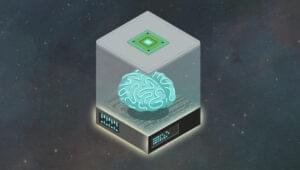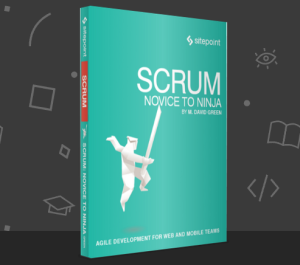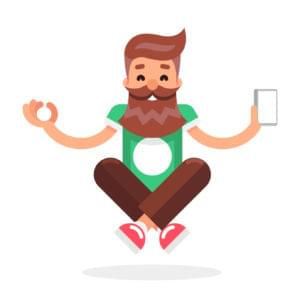7 Deep Work Tips That Will Dramatically Boost Your Productivity

Key Takeaways
- Schedule your entire week ahead, breaking tasks down into manageable, actionable sub-tasks and leaving room for unexpected events.
- Avoid multitasking as it drains focus and mental power, instead concentrate on one task at a time.
- Develop rituals for mundane tasks to free up focus for more demanding work, and take breaks from focus, not distractions, to cultivate focus as a skill.
- Minimize distractions by shutting down message notifications and telephones during work hours, and make yourself less accessible to maintain focus.
- Disconnect from work completely once tasks for the day are completed, developing a shutdown routine to signal the end of the workday to your brain.

Being busy is more often than not a trap — an illusory euphemism for poor time management. By doing deep work you’ll get rid of distractions, gain more focus, get more things done and, unexpectedly, have more time for other things.
Take Cal Newport, the author of Deep Work: Rules for Focused Success in a Distracted World — in just a few years he earned a PhD from MIT, published 4 books and lots of academic papers, all while leaving the office by 5:30PM and rarely working on weekends. Oh, and he’s also a professor at Georgetown University, married, and a father of two.
In a more familiar example, I’m a musician, software developer, entrepreneur, and — as of recently — a contributor to online publications (and I’m sure I’m not a multidisciplinary exception among SitePoint readers). I love pursuing all of my goals while learning something new (like a language or a dance), and exercising. I’ve found that I’ve never made more productive use of my time than since I adopted deep work practices.
What is Deep Work Anyway?
Cal, who coined the term, puts it this way:
Deep Work: Professional activities performed in a state of distraction-free concentration that push your cognitive capabilities to their limit. These efforts create new value, improve your skills, and are hard to replicate.
Cal also defines the counter-side of deep work — shallow work:
Shallow work: Non-cognitively demanding, logistical-style tasks, often performed while distracted. These efforts tend to not create new value in the world and are easy to replicate.
While staying focused and doing deep work, you’ll find that you multiply your output by 2X, 4X, or even more, every day or week. You’ll also feel happier and more accomplished.
Whether you are figuring out the business plan for your startup, doing some programming, or writing content, deep work is a valuable, rare and meaningful asset that will enable you to produce more of what actually makes your business, program, or publishing shine. You get all of this while cutting the clutter and freeing more time for other matters.
So let’s get to it!
1. Schedule Your Entire Week Ahead
This may seem daunting at first, but you’ll get better at it with practice. You’ll see that trying to plan the whole week will force you to actually think and define in detail what it is that you need to do. Also, while you put these tasks in your calendar, you’ll need to allocate time for them, also forcing you to be realistic.
Doing this is critically important as you don’t want to be wandering through every workday, thinking about what you have to do and making decisions all the time — just check your schedule for today, and execute.
Again, it doesn’t need to be perfect. You’ll get better at it. Since this is a big one, let’s expand a little:
Define Tasks the Right Way
Ask yourself: if I get one thing done this day and feel satisfied, what would that be? Yes, that “one thing” is deep work, and you’ll be amazingly productive if you can get one of those tasks done every day (just like the Seinfeld Strategy).
Be specific. “Write article” or “program app” won’t do it. You’ll have to think in terms of actionable sub-tasks. For writing an article, that could be:
- Write an outline
- Write the draft
- Proof-read and edit
For a program, this can vary wildly, but one possible course of action may be:
- Define scope and pick a component
- Research and reference documentation
- Code
- Test, debug, and refactor
- Document
- Repeat
Be small. Small tasks are more actionable and less intimidating than big ones. While “1 hour of workout” is specific enough, you could end up exhausted and discouraged if you’re not used to that level of exertion. Two different blocks of “30 minutes of exercise” could be more approachable (besides, it turns out that even just 30 minutes of daily exercise does the trick). While planning your week, go through this mental process: am I intimidated by this? If the answer is yes, try breaking it into smaller, more actionable sub-tasks.
At the Beginning of the Workweek
Brainstorm the current state of your project. Take a moment to think about what you want to accomplish, and try to deconstruct or reverse-engineer the process so that you can see what its components are.
Review “for later” tasks. You might have a mix of deep and shallow tasks that you’ve been leaving for later. Review them all and see if they fit somewhere in the week.
Leave some room. I normally schedule about 75% of my work week. This makes it possible for me to move things around and handle unexpected events.
You could schedule every minute, and that would be incredibly productive if you’re good at it. For most, this isn’t realistic — go easy on the scheduling at first.
At the End of the Workweek
Ask yourself (and be sincere): am I labeling shallow work as deep just to feel more accomplished?
Evaluate. Did it go well? Did you over-estimate or under-estimate time assignments? Keep all of this in mind for next week.
Shut down. You’re done. Close all of your browser tabs, apps, and everything work-related. See you next week.
2. Don’t Multitask
Multi-tasking is a myth. As I mentioned in one of my articles, changing from one task to another not only has a cost in time, but more importantly, it comes at a very high cognitive expense. That is, it makes you less productive because you let your limited focus and mental power drain as you switch from one task to another. See these articles for more info about this:
- The High Cost of Multitasking: 40% of Productivity Lost by Task Switching
- The True Cost Of Multi-Tasking
Do one thing, and one thing only. Don’t attempt to write a report while talking to your peers, or code PHP routines while checking the news. It’ll easily take you double the time.
In fact, unless it’s your actual job, don’t surf the web. This has been happening to me a lot — I’m coding something and some random thought crosses my mind, and I just take a minute to check it on the Internet. Or I take a little break and go check the news for five minutes… don’t do it.
One day I was working in a tiny room with no TV, no phone (more on this later), and no Internet. Since I had my computer I decided to focus on tasks I didn’t need the Internet for, and I had my most productive day in years.
I hear what you’re saying — “if I don’t check this right now, I’ll forget about it!” Fair enough, make a “for later” note on a piece of paper and put your focus back on what you were doing.
3. Ritualize
The more you can go on auto-pilot for the mundane tasks (cooking, eating, hygiene, relaxing, choosing what to do next), the more focus you’ll be able to maintain.
Something you can use the Internet for: search for “morning rituals”, read a couple of articles to see if one routine makes sense to you. Put it in practice and you’ll see how it pays off after a week or so.
Extra tip: don’t do email first thing in the morning. Your brain is at its best after a coffee and a shower, and you want to save this very valuable state for things that actually require this capacity. With some exceptions, replying to email isn’t the most mentally demanding task, so leave it for later.
4. Take Breaks from Focus, Not from Distractions
With YouTube, instant notifications, podcasts, and more, we live in a distracted world. If you want to gain more focus to get more done, there will have to be a change of paradigm in your life. You’ll need to make deep work the most important part of your activities, with breaks scheduled around it rather than through it.
Embrace Boredom
Focus is your main asset for deep work, and it is a skill you need to learn and cultivate. When you finish your assignments, don’t bombard yourself with news, messages, or radio shows. Instead, take time to relax. Have a walk, or a cigar if you’re into that, or enjoy some music. On the metro, don’t stare at your phone — watch the world and people around you. While waiting at the dentist, leave the magazines sitting there and look around — get used to not doing anything at all.
Extra tip: further exercise your focus. Meditation and exercises that combine both physical training and concentration (such as jumping rope, tightrope walking, or slacklining) are proven to improve focus and attention.
5. Message Notifications, Telephones: Shut Everything Down
I used to have the Gmail Notifier in my browser, calling my attention every time a new message arrived… what for? If you’re not going to reply now, it doesn’t need your attention.
Become Hard to Reach
Put your phone in silent mode or Do Not Disturb while you’re working. You can go further and just turn push notifications off on your phone altogether. Search: turn push notifications off with your device name and follow the instructions.
You’ll still be able to see messages and activities you’re interested in when you access your apps, but don’t let those disturb you when you work. An even simpler method is to put your phone in airplane mode when you work.
Yes, on Slack too. Dispense with the unspoken expectation that you need to reply immediately because it’s a sign of how effective and productive you are. It is not. That’s a damaging lie and the opposite is true.
Is your boss, spouse, friend, or colleague worried because you’re not replying right away? Let them know that you’ll reply, but not immediately. You can say something like: “I’m not checking messages while I’m working.” Your boss won’t complain as you will deliver more in less time.
6. Quit Social Media
Facebook spends millions of dollars paying incredibly smart PhDs to research ways to take your most valuable deep work asset from you: your attention, and with it, your focus.
When I quit Facebook about six years ago, I would occasionally hear things like:
- Oh, get on Google+, it’s very different.
- You should try Twitter.
- Oh, I had to send a personal email to you about this event because you’re so “special”…
- Come on, man, come back!
But I didn’t get out of one social network to get into another one. Others may not have Facebook’s resources, but they sure want all of your attention and will do their best to get it.
If making this decision troubles you, consider the two different approaches people normally take, as Cal describes them, and choose the one that suits you best:
The Any-Benefit Approach: You’re justified in using a tool if you can identify any possible benefit to its use, or anything you might possibly miss out on if you don’t use it.
The Craftsman Approach to Tool Selection: Identify the core factors that determine success and happiness in your professional and personal lives. Adopt a tool only if its positive impact on these factors substantially outweighs the negative impacts.
Extra tip: quit news altogether. Let’s admit this — news is to keep you entertained, not informed. You’ll be amazed at how much time quitting news will free up, time that you’ll be able to be use in more productive ways or spend in more fruitful forms of entertainment. Read CGP Grey’s priceless essay about this very topic, Why TV News is a Waste of Human Effort: One Example Worth a Trillion Dollars.
7. Disconnect from Work
Once you’re done with your tasks for the day, shut down. If you can’t stop thinking about what you’ve done and what you need to do tomorrow, this is normal, but prevent yourself from checking email and browsing work-related stuff. If you work at home, close all work-related applications and lock your work-related tools away until the next day.
Develop a shutdown routine, something that tells your brain you’re done for the day. It can be exercising, listening to music, or having some kind of treat — something you enjoy and that sets a clear divide.
Recommended Reading
- Deep Work: Rules for Focused Success in a Distracted World by Cal Newport.
- The 4 Disciplines of Execution: Achieving Your Wildly Important Goals by Chris McChesney, Sean Covey, and Jim Huling.
- The 4-Hour Workweek: Escape 9-5, Live Anywhere, and Join the New Rich by Timothy Ferriss.
- Study Hack, Cal Newport’s blog.
Wrapping It Up
That was a lot! But you don’t need try everything at once. Instead, take one step at a time, implement one practice, share the results in the comments, and then go for the next step.
A deep work approach will not only enable you to over-perform at work. It will assist in all other areas of your personal development, such as education, leisure time, and becoming better at anything that requires practice and attention, such as playing an instrument or learning a new language. It’s worth a try.
Frequently Asked Questions (FAQs) about Deep Work
What is the concept of Deep Work?
Deep Work is a term coined by productivity expert Cal Newport. It refers to the ability to focus without distraction on a cognitively demanding task. It’s a state of flow where you can produce high-quality work in less time. Deep work is about working smarter, not harder, and requires eliminating or minimizing potential distractions and interruptions to achieve a state of intense concentration and productivity.
How can I practice Deep Work?
Practicing Deep Work involves creating a distraction-free environment, setting clear goals, and scheduling dedicated time for focused work. It’s important to establish a routine and stick to it. This could mean setting aside a few hours each day for deep work or dedicating entire days to it. It’s also crucial to take regular breaks to avoid burnout and maintain productivity.
What are the benefits of Deep Work?
Deep Work can significantly boost your productivity and efficiency. It allows you to accomplish more in less time by eliminating distractions and focusing solely on the task at hand. It can also enhance your problem-solving and critical thinking skills, as it requires intense concentration and cognitive effort. Moreover, it can lead to greater job satisfaction as you’re able to produce high-quality work.
How does Deep Work differ from regular work?
Unlike regular work, which often involves multitasking and is frequently interrupted, Deep Work requires intense focus and concentration on a single task. It’s about quality over quantity, and producing high-value work rather than simply ticking off tasks on a to-do list. Deep Work is more mentally demanding but also more rewarding and productive.
Can anyone do Deep Work?
Yes, anyone can practice Deep Work. However, it requires discipline, commitment, and the right environment. It’s not about working longer hours, but about making the hours you work more productive. It’s a skill that can be developed and improved over time.
How can I create a conducive environment for Deep Work?
Creating a conducive environment for Deep Work involves eliminating potential distractions, such as turning off notifications on your devices, choosing a quiet place to work, and setting clear boundaries with colleagues or family members. It’s also helpful to have all the resources you need for your task at hand to avoid unnecessary interruptions.
How can I maintain my focus during Deep Work?
Maintaining focus during Deep Work can be challenging, but there are strategies to help. These include taking regular breaks, practicing mindfulness or meditation to improve your concentration skills, and maintaining a healthy lifestyle, including regular exercise and adequate sleep, to ensure optimal cognitive function.
How long should a Deep Work session last?
The length of a Deep Work session can vary depending on the individual and the task. However, productivity expert Cal Newport suggests that sessions should last between 60-90 minutes. It’s important to take regular breaks to rest and recharge.
Can Deep Work lead to burnout?
While Deep Work can significantly boost productivity, it’s also mentally demanding and can lead to burnout if not managed properly. It’s crucial to balance periods of intense focus with rest and relaxation. Regular breaks, adequate sleep, and a healthy lifestyle are all important for maintaining mental health and avoiding burnout.
How can I measure the effectiveness of my Deep Work?
The effectiveness of Deep Work can be measured by the quality and quantity of work produced. You may also notice improvements in your problem-solving and critical thinking skills. However, it’s important to remember that the benefits of Deep Work may not be immediately apparent, and it’s a skill that improves with practice.
Lucero is a programmer and entrepreneur with a feel for Python, data science and DevOps. Raised in Buenos Aires, Argentina, he's a musician who loves languages (those you use to talk to people) and dancing.

Published in
·AI·Computing·Content Marketing·Email Marketing·Entrepreneur·Low Code·Marketing·SEO & SEM·October 6, 2021
Published in
·Android·App Development·iOS·Mobile·Mobile Web Development·Tools & Libraries·August 7, 2015



